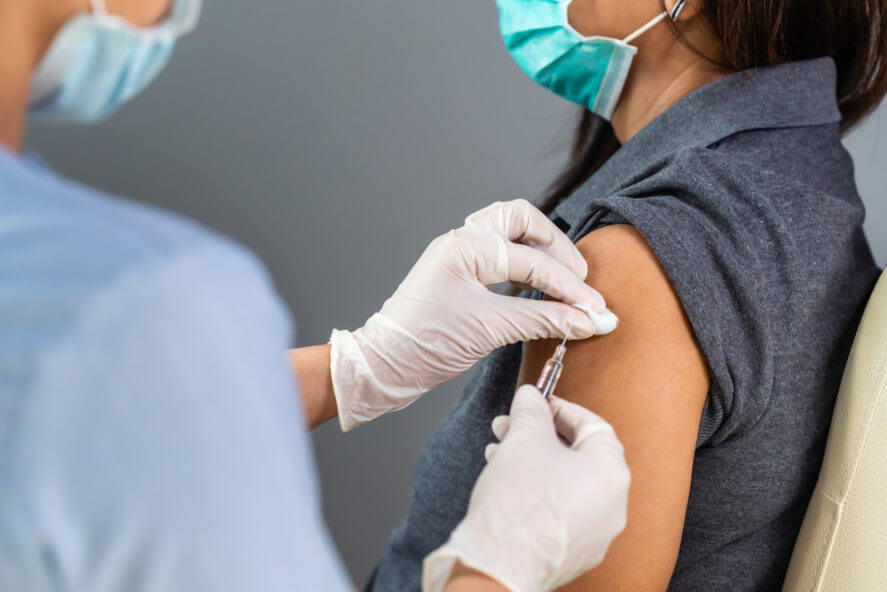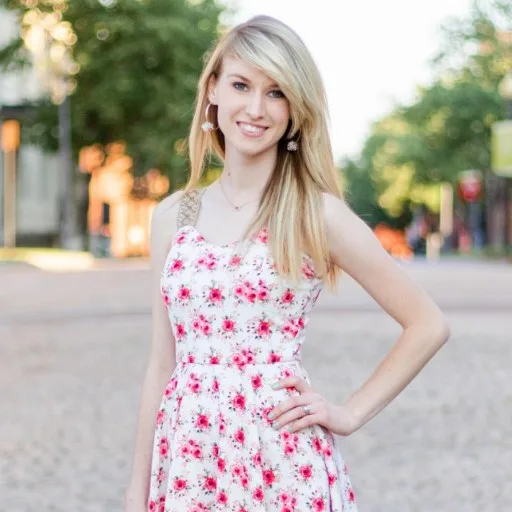
Vaccine distribution should be back to normal by mid-week, officials say.
RICHMOND-While the ice storm delayed this week’s vaccine shipment, things should be back to normal in a few days. At the most, only this weekend’s vaccination events should be suspended, state officials said Friday.
As wintry weather ransacked many parts of Virginia over the past week, ice and snow also hit other parts of the country.
“Weather has been a big challenge all over the country,” Dr. Danny Avula said. “So because much of the distribution happens through some key distributions points in the Midwest, like Kentucky and Tennessee and Texas, we have had big delays in vaccine deliveries.”
Avula, who serves as head of Virginia’s vaccination program, admitted the delays created a bit of a challenge.
“About 106,000 doses of Moderna didn’t get delivered this week. That’s first and second doses,” Avula said. “And so those will get pushed into next week. And what that means is we are going to have to see a ton of output next week.”
Some Virginia vaccination sites closed due to the inclement weather. However, others remained open. For the sites that remained open, if an individual could not make it to their scheduled appointment due to the weather, the sites did not receive guidance from the state level about the proper protocol to take.
“Every provider’s going to handle that differently. I think in most cases what they’re going to do if they have an appointment cancellation, if they have the option to get someone else there, they probably will and then will just reschedule that individual for an upcoming appointment,” Avula said. “I think you’d have to check with the provider to see how they’re handling that. But no, no standard rule or protocol from our end.”
Vaccine Allocation Set to Increase
With news of the delay, Avula also highlighted some positive steps.
“We’ve had a big bump of new vaccine this week, which is pretty exciting. We’ve gone from 130,000 doses, up to about 161,000 doses for this upcoming week,” Avula said. “And so that is our core state allocation.”
In addition to the state allocation, there are other ways to get a COVID-19 vaccine dose in Virginia.
One is through the federal pharmacy partnership. Throughout the United States, the pharmacy rollout will receive a higher dose allocation, beginning next week. Instead of the 1 million weekly doses those partners previously received, the nationwide program received 2 million doses.
For Virginians next week, Avula noted that the pharmacy program will double the regular shipment of doses. Instead of 26,000, the state will have 52,000 to distribute.
“Those will be split among a number of different pharmacies,” Avula said.
The distribution process took several factors into account, including those living in remote locations and their access to the COVID vaccine, as well as which locations could best handle the vaccine supply.
“They’re all Pfizer doses, so there were some logistical realities around who could actually store and keep Pfizer,” Avula said.
Pfizer’s version of the vaccine has to be stored at ultra-cold temperatures. If a location couldn’t provide that, state officials couldn’t give it any of the extra doses.
JOIN THE CONVERSATION: Sign Up For Dogwood’s Newsletter
How Will The Pharmacies Fit In?
Previously, only CVS and Walgreens were part of the pharmacy vaccination plan. But in recent days, Virginia officials expanded that operation.
Stephanie Wheawill, state pharmacy director, explained the details on how the newly equipped pharmacies will integrate into the state’s plan.
“The good news is that all of the pharmacy partners we have added have all said, ‘Yes, we are absolutely willing the work with you,’” Avula said. “The question is, logistically, how does that happen? Some of that could be just us downloading our preregistered list and handing it to them and them making appointments. The intent certainly is to have those who have been waiting on our preregistered list be prioritized.”
Avula said he should be able to talk more about the pre-registered list next week.
In addition to other pharmacies, Federally Qualified Health Centers will also administer COVID-19 vaccines. Health clinics under that designation serve uninsured and underinsured individuals throughout the state.
“They are anticipating the on-boarding of four FQHC networks throughout the state in cohort two, so I’m expecting that will be the end of next week,” Avula said. “And then in cohort three, which would likely be the end of the following week.”
The state vaccine coordinator noted that he did not currently have numbers on how many doses those health centers would receive.
“But again, an exciting step to be able to bring more doses into Virginia,” Avula said. “And with FQHCs, to ensure that that’s going to a medically vulnerable population that FQHCs inherently serve.”
Scheduling Second Vaccine Doses
The state vaccine coordinator advised that people schedule their second dose before leaving their first dose appointment.
“Now up until recently that had not been happening because many providers were hesitant to make appointments without assuredness of having doses in hand. They weren’t certain that that production line was going to be maintained from the federal government. There was some, yeah, just uncertainty and hesitancy to do that,” Avula said. “But now, I think providers are understanding that they can and should go ahead and make those second dose appointments.”
He also stressed the importance of receiving the second dose from the same provider as the first.
“The primary reason for that is because that’s how the doses are allocated, right?” Avula said. “The providers get second doses delivered based on the first doses that they had delivered.”
For Pfizer, the second dose comes about three weeks after the first. For Moderna, the second dose comes about four weeks after the first.
Second Dose Concerns
For those receiving their second dose, if a major winter storm impacts their second shot date, that’s not inherently reason to worry.
“The main factor or guidance basically says, you know, plus or minus four days is fine for when you would receive the dose,” Avula said. “And the CDC has subsequently said up to six weeks out, 42 days, is really okay.”
In fact, waiting longer than the widely accepted four-day window could have some benefits. But it’s a little too early to tell.
“And then there has just been recent evidence, like, new studies that are showing that maybe a longer window actually improves vaccine efficacy. So we’ll wait to see more data that is collected around that to see if it really confirms that conclusion. And if it does, then the dosing interval will change, right? The recommended dosing interval will go from three weeks with Pfizer, four weeks with Moderna, to whatever the optimal dosing interval is,” Avula said. “But all that to say that waiting up to six weeks is totally fine and that it appears that perhaps waiting a bit longer might even be better.”
Amie Knowles reports for Dogwood. You can reach her at [email protected]
Support Our Cause
Thank you for taking the time to read our work. Before you go, we hope you'll consider supporting our values-driven journalism, which has always strived to make clear what's really at stake for Virginians and our future.
Since day one, our goal here at Dogwood has always been to empower people across the commonwealth with fact-based news and information. We believe that when people are armed with knowledge about what's happening in their local, state, and federal governments—including who is working on their behalf and who is actively trying to block efforts aimed at improving the daily lives of Virginia families—they will be inspired to become civically engaged.


VIDEO: Your support matters!
Your support matters! Donate today. @vadogwoodnews Your support matters! Visit our link in bio to donate today. #virginianews #virginia #community...

Op-Ed: Virginia’s new Democratic majorities pass key bills to improve your lives, but will Youngkin sign them?
The 2024 Virginia General Assembly regular session has wrapped up. It was a peculiar session from the outset, with Democratic majorities in the...

Op-Ed: Why Virginia Needs A Constitutional Amendment Protecting Reproductive Freedom
Virginia’s recent election season in 2023 drew in eyes from all over the country. Reproductive freedom was on the line and Virginia remained the...

From the state rock to the state flower, here’s how Virginia got its symbols
Have you ever wondered why the Dogwood is the state flower? Or how the cardinal became the state bird? We’re here to answer those questions and more...

VIDEO: Second-gentleman Douglas Emhoff gives speech on reproductive freedom
Second gentleman, Douglas Emhoff touched on reproductive freedom not only being a woman's issue but "an everyone's issue" during the Biden-Harris...

Glenn Youngkin and the terrible, horrible, no good, very bad night
Election Day 2023 has come and gone, and while there are votes to be counted, one thing is perfectly clear: Virginians unequivocally rejected Gov....





